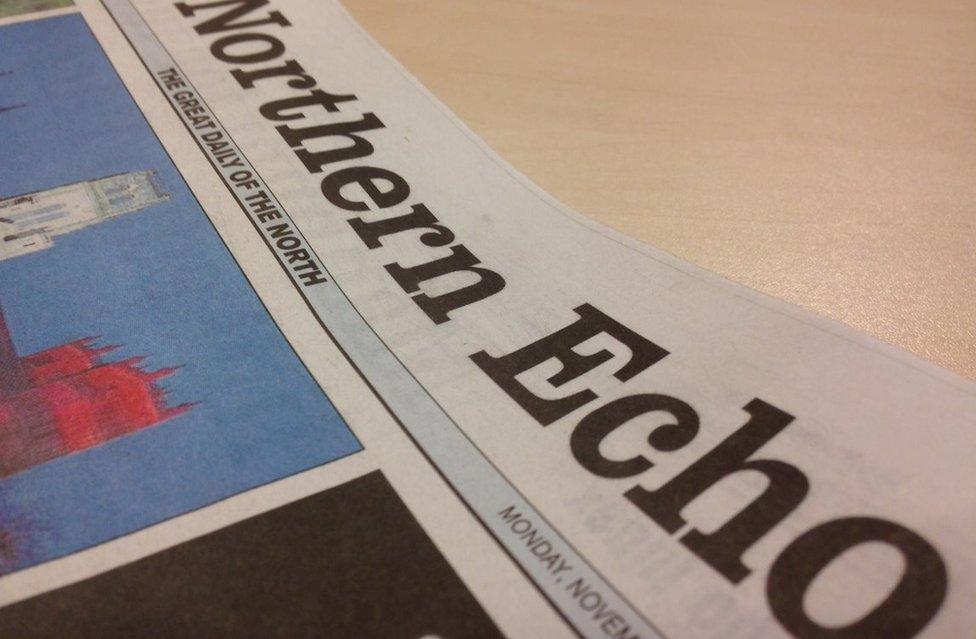Cleveland Police 'tried to access journalists' phone records'
- Published

The Northern Echo claims three of its journalists had their phones monitored by Cleveland Police
A police force attempted to use anti-terror laws to access the phone records of journalists and its own staff in a bid to trace a whistle-blower, it has been claimed.
Cleveland Police allegedly tried to monitor the activity of six people after a 2012 front-page story in the Northern Echo.
This included reporters from the paper, a staff member and a solicitor, the Echo said, external.
The force has not commented to the BBC.
A complaint has been lodged by the Police Federation with the Independent Police Complaints Commission (IPCC).
'Serious concern'
The force allegedly used the Regulation of Investigatory Powers Act (RIPA) - which governs surveillance in relation to crime or concerns over public safety - to identify the whistle-blower.
An application was made, the Echo said, after it published the story, external, which was based on an internal force report about institutionalised racism within the force.
A Cleveland Police spokeswoman told the paper she could "neither confirm nor deny" whether a RIPA application had been made to monitor the phone activity of three of its journalists, a serving police officer, a solicitor and the then-chairman of Cleveland Police Federation.
Northern Echo editor Peter Barron said: "These allegations are a matter of serious concern - that a police force should apparently go to these lengths to identify the source of a story which was clearly in the public interest.
"This is surely not what the legislation was intended to do and the fact that Cleveland Police will neither confirm nor deny the allegations adds to our concerns."
The IPCC confirmed it had received the letter of complaint from the National Police Federation on behalf of the Cleveland Police Federation chair.
Once registered, the complaint will be referred back to Cleveland Police to look at before the IPCC considers an independent investigation.